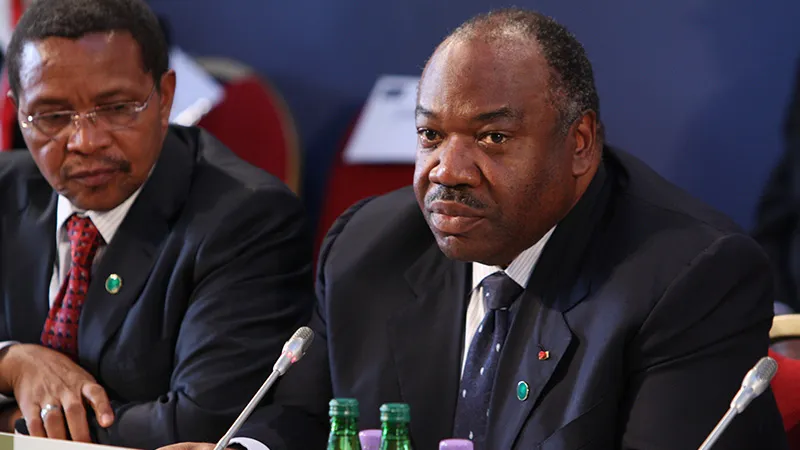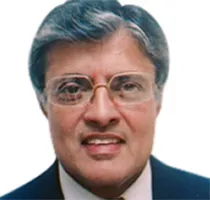-
CENTRES
Progammes & Centres
Location
Developing volatility in the aftermath of presidential elections in Gabon.

Gabon, a relatively stable, small country with a population of 1.5 million in West-Central Africa, has been witnessing unrest and violent rioting after the presidential elections on August 27. The present incumbent Ali Bongo Ondimba was declared the winner by a razor-thin majority. He polled 49.8% of the nationwide votes as against his rival Jean Ping with 48.23%. The winning margin was just 5594 votes. The opposition accused Bongo of electoral fraud and have taken to the streets with protests and rioting which turned violent. Many government buildings were damaged and shops looted. Even the National Assembly building was set on fire. The subsequent action by the security forces led to at least six deaths and many casualties.
For Gabon, unlike many other African countries, this is a new situation because the country has had a relatively stable history. After its independence from France, it has been mostly ruled by the Bongo family. The father, Omar Bongo Ondimba ruled for four decades and after his death in 2009, Ali took over.
To his credit, Ali Bongo has tried in his seven years of power to erase the dynastic tag by various initiatives. He steadily sidelined some of his father’s powerful associates. He even reversed his father’s ban on the Union Nationale Opposition. He also took some measures to rebalance and diversify the economy. There was investment in social sectors. All these have obviously been not enough to boost his popularity. The country is heavily dependent on oil both for revenues and Foreign Exchange. The steep fall in global oil prices has hit Gabonese economy very badly. It does not have the resilience to absorb such shocks. A resentment among the public was also building up against the dominance of outsiders from West African countries in the government and business.
The opposition candidate, Jean Ping, though projected as a welcome change is hardly an outsider. In fact, he has been a total establishment man. He was very close to Omar Bongo and has held important positions in his regime. At one time, he was also married to Ali’s sister. It is true that in the last few years, he has been away from active Gabonese politics. He was the Chairman of the AU Commission for one term. When Ali was finishing his term, he jumped into electoral politics with an anti-dynastic rhetoric which seemed to appeal to the electorate. Jean Ping’s impressive electoral performance was also helped by the fact that two or three other candidates withdrew in his favour thus consolidating his votes.
Independent election observers have suspected fraud and serious irregularities in the poll. EU’s Election Observation Mission has withheld its endorsement of the poll, but the full report would not be out for months adding to the confusion. Traditional supporters like France and US are now under great pressure to take an unequivocal stand. What fuels the suspicion of fraud is that early results showed Ping winning six of the nine provinces including the largest one, Estuaire. Subsequently, results in Ali’s home-ground Haut-Ogooue' showed a 99% turnout with 95.8% voting for him. There is now a demand from the opposition as well as international partners for greater transparency and for the government to make public the results of each polling station. So far, Ali has refused to do that.
The high point in the crisis was the detention of Ping and his supporters in his headquarters when the rioting was getting out of control. They were released only after interventions from the UN and France.
The events in Gabon also raise questions about the consolidation of democracies in Africa. After the end of the Cold War and towards the end of the 1990s, one saw a political resurgence in Africa. The number of military coup d'etats and violent overthrow of regimes came down drastically. More and more African states embraced multiparty democracy. Regular elections, though not perfect by Western standards, made rulers accountable. The trend was very encouraging. However, in the last few years one sees tendencies of rulers trying to cling on to power by any means that they could manage. One way has been to extend term limits. In countries like Burkina Faso, Cameroon, Burundi, Equatorial Guinea and the Democratic Republic of Congo this has been a very unpopular move. But, there are cases line Rwanda and the Peoples’ Republic of Congo where the public have enthusiastically supported extended terms. There has also been the case of Nigeria — a country notorious for military coups and dictatorships in the past — where the incumbent handed over power after defeat in the elections. Hence, it is difficult to see a clear trend one way or the other.
What is the way out for the current impasse in Gabon? There seem to be only three ways. The first is for a compromise between Bongo and Ping. Both could agree to a recount of the votes in a transparent manner with the understanding that they will abide by the resultant verdict. The second way is for a legal and constitutional remedy. This course could lack credibility with the opposition because the President of the Constitutional Court who has been in that position since 1991 is a close associate of the Bongo family. The third option is for AU to mediate. At this juncture, this looks unlikely. To its credit, AU has been unequivocal in its criticism of removal of elected rulers by the military. It suspended Togo, Guinea Bissau and Egypt from AU membership after such military take overs. However, in electoral disputes it would be difficult for AU to intervene suo moto.
The views expressed above belong to the author(s). ORF research and analyses now available on Telegram! Click here to access our curated content — blogs, longforms and interviews.

H.H.S. Viswanathan was a Distinguished Fellow at ORF and a member of the Indian Foreign Service for 34 years. He has a long and diverse ...
Read More +